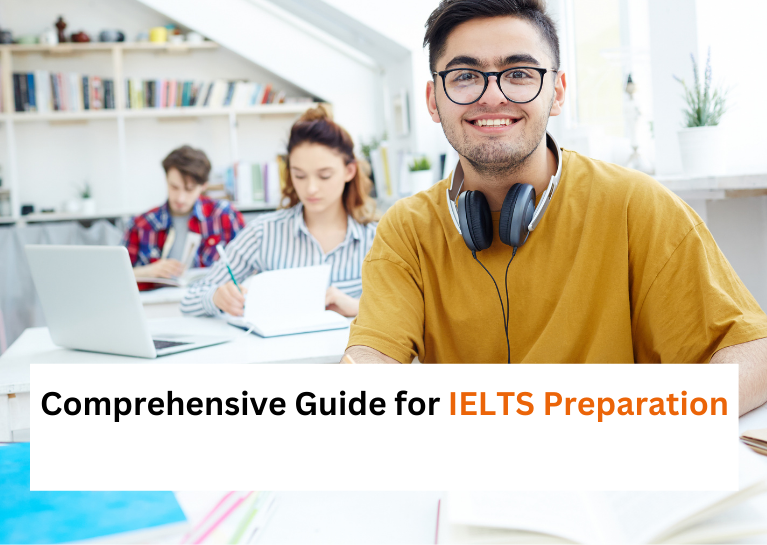Canada has an excellent education system. It is praised around the world for its great schools, teaching plans, and teachers. This makes jobs for teachers in Canada very respected and popular. But, many provinces and territories in Canada need more qualified teachers. So, they are trying hard to find new teachers to fill these open positions.
If you are a new teacher from another country or have taught for many years in your home country, moving to Canada gives you many chances. This guide explains how to immigrate to Canada as a teacher. It tells you about immigration paths for teachers, the process to get certified in each province, and what kinds of teaching jobs are in demand. We invite you to explore the diverse and multicultural teaching opportunities Canada offers.
Table of Contents
ToggleCanada Immigration Options for Teachers
Canada welcomes educators through two primary immigration pathways: the Federal Skilled Worker Program (FSWP) and the Provincial Nominee Programs (PNPs).
1. Federal Skilled Worker (FSW) Program
The Federal Skilled Worker program helps people move to Canada to work. It is part of Express Entry. Express Entry is how Canada lets in workers from other countries. The Federal Skilled Worker program is for people who have good work experience. They must also have learned English or French well. Teachers who meet these rules can apply through this program. They need to show they have the right education and job experience. If they know English or French at a high level, they may be able to move to Canada.
Eligibility Criteria for the FSW Program for Teachers
- Education: Most jobs want teachers with a bachelor’s degree or higher in education or a related field.
- Work Experience: Teachers need to have at least one full year of paid teaching work or similar jobs.
- Language Proficiency: People have to show they can speak English or French well by passing tests like IELTS or TEF.
- Age: Younger people get more points when they apply because of their age.
- Adaptability: Working or studying in Canada before helps. Having a job lined up or close family in Canada who are citizens or residents also helps qualify.
2. Provincial Nominee Programs (PNP)
Canadian provinces can suggest people who want to live there through programs called Provincial Nominee Programs (PNPs). Many provinces in Canada have PNP options suitable for teachers. Here’s a table showing provinces and their PNP streams that may work for teachers:
| Province | PNP Streams for Teachers |
|---|---|
| Alberta | Alberta Opportunity Stream |
| British Columbia | Skills Immigration – Skilled Worker |
| Manitoba | Skilled Worker Overseas – Human Capital |
| Pathway (specifically for teachers) | |
| New Brunswick | Skilled Workers with Employer Support |
| Newfoundland & Labrador | Newfoundland & Labrador Express Entry Skilled Worker |
| Nova Scotia | Nova Scotia Demand: Express Entry |
| Ontario | Ontario Immigrant Nominee Program (OINP) – Express Entry Human Capital Priorities Stream |
| Prince Edward Island | PEI PNP Express Entry |
| Quebec | Quebec Skilled Worker Program |
| Saskatchewan | International Skilled Worker – Occupation In-Demand |
| (Education and Early Childhood Educators) |
Tips for Teachers Applying Through PNP Streams:
- Job Offer: If you get a real job offer from a Canadian company, especially in a province needing teachers, it can really help your chances of getting nominated by that province.
- Teacher Certification: Making sure your teaching qualifications are accepted in Canada is useful. You may need to get your credentials checked by an organization in the province you want to live in.
- Adaptability: Many PNPs give points if you have worked or studied in that province before. This shows you can adapt, which improves your ranking in the PNP stream.
3. Atlantic Immigration Program (AIP)
The Atlantic Immigration Program (AIP) is a plan created by the Government of Canada and the provinces of Nova Scotia, New Brunswick, Newfoundland and Labrador, and Prince Edward Island. The AIP has different options that may be right for teachers:
- Atlantic High Skilled Program
- Atlantic Intermediate Skilled Program
- Atlantic International Graduate Program
The Atlantic Immigration Program is for bosses in that area. It lets them hire people from other countries if they can’t find workers locally. Teachers with right skills and job offers from employers in those provinces may apply to live there permanently. The program helps fill job openings that locals can’t fill.
How to Find Teaching Jobs in Canada
While immigration is a crucial first step, securing a teaching job in Canada is equally important. Here are some valuable tips to get you started:
- Look at School Boards: The school boards in each province and territory hire most teachers. Go to their websites. Look for job openings. Learn what they want in teachers.
- Talk to Canadian Teachers: Online places like LinkedIn have teacher groups. Meeting Canadian teachers can help. They know the job market well. Ask them for advice.
- Find a Teacher Recruiter: Some companies help teachers find jobs. A good recruiter knows what schools need. They can match your skills to open jobs.
In-Demand Jobs in Canada for Teachers
| Job Title | NOC Code |
|---|---|
| Elementary school and kindergarten teachers | 41221 |
| Secondary school teachers | 41220 |
| Elementary and secondary school teacher assistants | 43100 |
| College and other vocational instructors | 41210 |
| Early childhood educators and assistants | 42202 |
| University professors and lecturers | 41200 |
| University Professor | 4011 |
| School principals and administrators of elementary and secondary education | 40021 |
| Post-secondary teaching and research assistants | 41201 |
| Other instructors | 43109 |
Benefits of Moving to Canada as a Teacher?
Beyond the exciting prospect of embarking on a new adventure, there are numerous compelling reasons to consider how to immigrate to Canada as a teacher:
- High Demand for Teachers: There’s a big need for teachers in Canada right now. Some subjects and rural areas have a shortage. This means more job chances and faster career growth for you.
- Competitive Salaries and Benefits: Teachers in Canada get good pay and benefits. They have health insurance, pension plans, and paid leave time.
- Multicultural and Inclusive Environment: Canada has people from many different cultures. As a teacher, you’ll help create classrooms that value diversity and accept everyone.
- Excellent Quality of Life: Canada ranks high in quality of life. It’s a safe and stable place with great healthcare and schools.
How Much Do Teachers Make in Canada?
Teaching jobs pay different money amounts in Canada. The money teachers get paid depends on things like how long they have been teaching, what degrees they have, and where they live. But, according to an organization that represents teachers in Canada, the average amount of money a qualified teacher earns each year is around CAD $81,285 (USD $63,780).
Conclusion
Moving to Canada as a teacher can be an exciting change. Canada welcomes immigrants and needs many great teachers. Teaching in Canada gives you a good career and a high quality of life. You will also help make Canadian society more vibrant and diverse.
FAQs
Is it easy to immigrate to Canada as a teacher?
Immigration rules are different for each person. But Canada has many ways for educated people to come and live here. Some paths are through programs chosen by provinces. Another way is the Express Entry system.
Are teachers in demand in Canada?
Do schools in Canada want teachers from other countries? Yes, they do. Many places in Canada look for teachers from abroad. They need people for open teaching jobs.
Can a foreigner be a teacher in Canada?
Yes, people from other countries can get jobs as teachers in Canada. Canada accepts skilled workers from everywhere. Foreigners can apply for teaching jobs. If they meet the needed rules, they can get the right papers to teach in Canadian schools.
What qualifications do I need to be a teacher in Canada?
To become a teacher, the needs differ across provinces. But usually, you must have a bachelor’s degree related to education. You also need to complete a teacher training course. Plus, you may need extra certificates or tests to show language skills. The province where you want to teach decides these extra needs.






